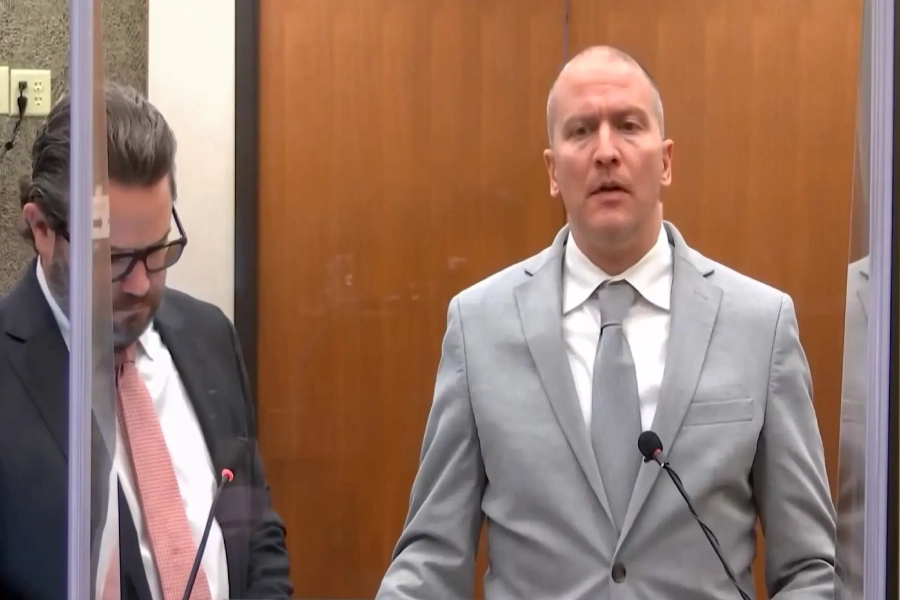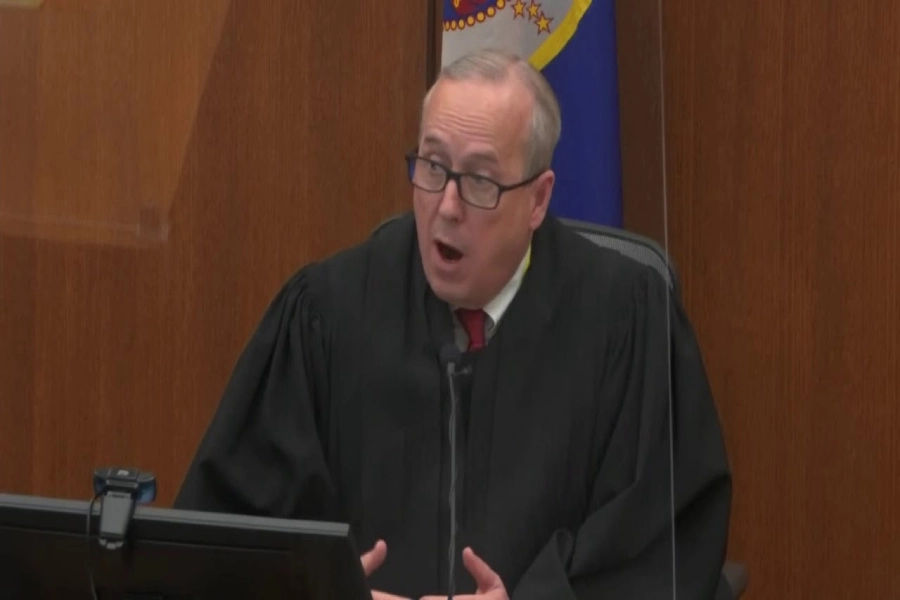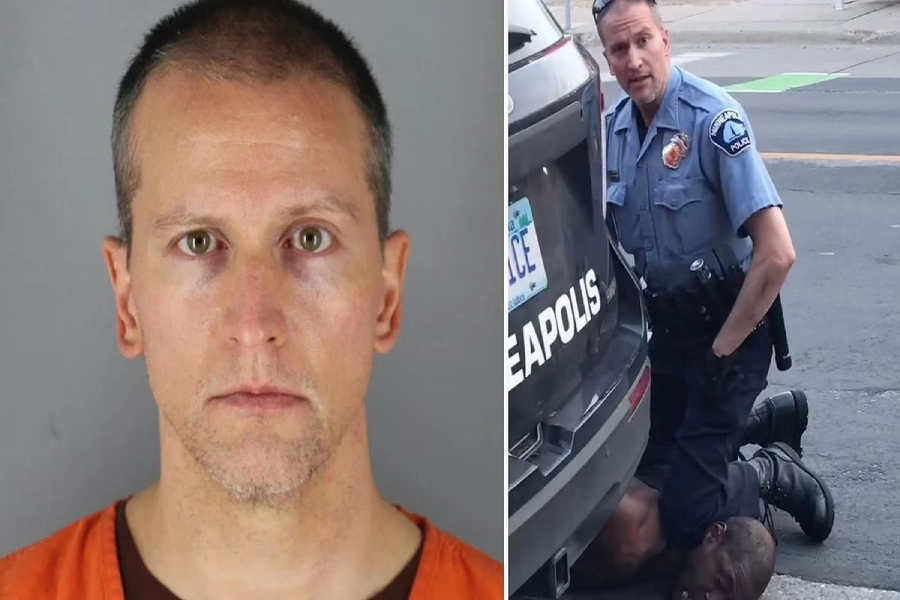As the fifth anniversary of George Floyd’s death nears, Derek Chauvin — the former police officer convicted in Floyd’s murder — is back in the news. This time, it’s not about a new trial or appeal, but a possible federal pardon by Donald Trump.
With growing speculation and rumors online, many Americans are searching for answers: Can Derek Chauvin be pardoned? Would he be released from prison? What does the law say? This article breaks it all down — factually and legally — to help you understand what a pardon would mean for Chauvin and the broader U.S. justice system.

Who Is Derek Chauvin and Why Is He in Prison?
Derek Chauvin was convicted in both Minnesota state court and federal court for his role in the 2020 killing of George Floyd. The incident — captured on video — ignited international protests and intensified national conversations around police violence and racial injustice.
Chauvin is serving:
-
22.5 years in state prison for second-degree unintentional murder.
-
20 years in federal prison for violating George Floyd’s civil rights.
Currently, Chauvin is held in a federal prison in Big Spring, Texas. However, if his federal sentence is vacated (e.g., by a presidential pardon), he would be transferred back to Minnesota to serve his state time.
Can Donald Trump Pardon Derek Chauvin?
Legally: Yes, but only for federal crimes.
Under Article II, Section 2 of the U.S. Constitution, the President has broad authority to issue pardons for federal offenses. However, this authority does not extend to state-level convictions. Therefore:
Trump can pardon Derek Chauvin for his federal civil rights conviction.
Trump cannot pardon Chauvin for his Minnesota state murder conviction.
Legal Fact:
A presidential pardon erases a federal conviction but has no impact on state sentences. Chauvin’s state prison term still runs until 2035, with supervised release until 2043.

What Would a Federal Pardon Actually Do?
If Donald Trump issues a presidential pardon for Derek Chauvin’s federal conviction:
-
The federal civil rights conviction would be removed from Chauvin’s criminal record.
-
He would be transferred back to state custody in Minnesota.
-
He would continue serving his 22.5-year state sentence.
-
No immediate release would occur.
In short, it would be a symbolic act — not a practical one — but symbolism can have powerful social and political consequences.
Why Is This Pardon Being Discussed Now?
Several key developments have brought this issue back to public attention:
-
The fifth anniversary of George Floyd’s death (May 25, 2020).
-
Donald Trump’s reelection campaign and eventual victory in 2024.
-
Right-wing influencers, such as Elon Musk, calling for a pardon.
-
Trump’s history of issuing controversial pardons during his first term.
Although Trump denied plans to pardon Chauvin in March 2025, officials in Minnesota are preparing for unrest, and public debate continues to escalate.
What Minnesota Officials Are Saying
Governor Tim Walz:
“If Trump pardons Chauvin, we will transfer him to serve his state sentence. He’s not walking free.”
Attorney General Keith Ellison:
“Trump has zero power to pardon the state conviction. A federal pardon would be political theater.”
Minneapolis Safety Commissioner Toddrick Barnette:
“We have no intelligence confirming a pardon. But we’re planning for any outcome.”
Internal city memos confirm Minneapolis is preparing emergency protocols in case of mass protests.
Legal Breakdown: Federal Pardon Power vs. State Authority
-
Presidents can only pardon federal crimes.
-
Governors can pardon state crimes — but Minnesota’s governor has no intention of doing so.
-
Chauvin’s sentences are being served concurrently, but removing one has no effect on the other.
This legal structure — known as dual sovereignty — is well established in American constitutional law. It allows for parallel prosecutions at state and federal levels without violating double jeopardy protections.
Key Legal Principle:
The dual sovereignty doctrine ensures that Derek Chauvin’s state murder conviction remains valid, even if Trump nullifies the federal charges.
What About the Other Officers?
Three other former Minneapolis police officers were also convicted for their roles in the George Floyd case:
-
Thomas Lane and J. Alexander Kueng have been released from federal prison but remain on state probation.
-
Tou Thao remains in custody with a projected release in late 2025.
As of now, Trump has not commented on potential pardons for these individuals.
Why This Matters for America’s Justice System
Even though a federal pardon wouldn’t free Chauvin, it could still:
-
Reignite national protests, especially near the Floyd anniversary.
-
Undermine police accountability reforms, particularly in Minneapolis.
-
Damage public trust in the impartiality of the criminal justice system.
Minneapolis is currently under a federal consent decree requiring deep police reform. A pardon could signal resistance to oversight, especially from a president who has frequently criticized reform efforts as a “war on cops.”
Legal and Political Implications
Issuing a pardon in a high-profile case like this would have long-term consequences:
-
Politically, it could energize Trump’s base but alienate moderates and minorities.
-
Legally, it would reaffirm the vast reach of presidential pardon powers — and possibly invite calls for constitutional reform.
-
Socially, it could reignite civil unrest and worsen racial divisions in the U.S.
Conclusion
A Derek Chauvin pardon by Donald Trump would not free him. It wouldn’t change his state conviction. But it could serve as a powerful political message, one that could either embolden or inflame, depending on your perspective.
For many, such a move would be seen not as justice — but as political messaging at the cost of national healing. Whether or not the pardon happens, the debate it has sparked reveals deep tensions over justice, power, race, and the rule of law in America.

